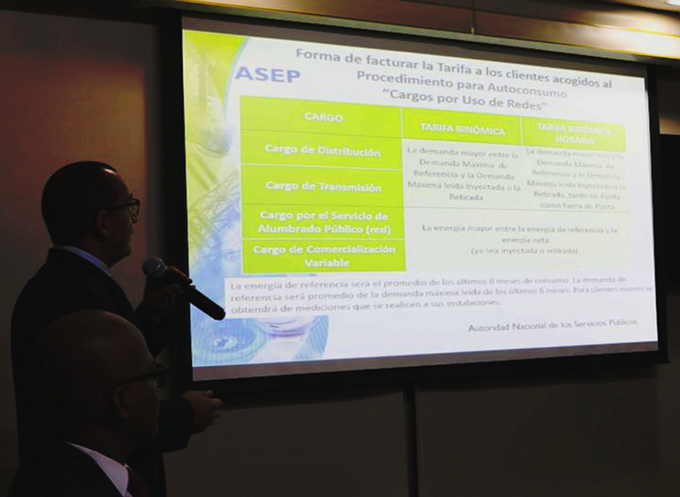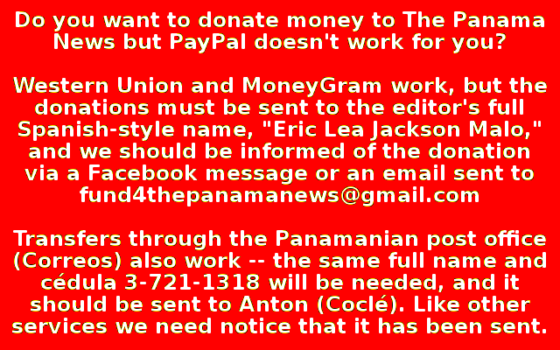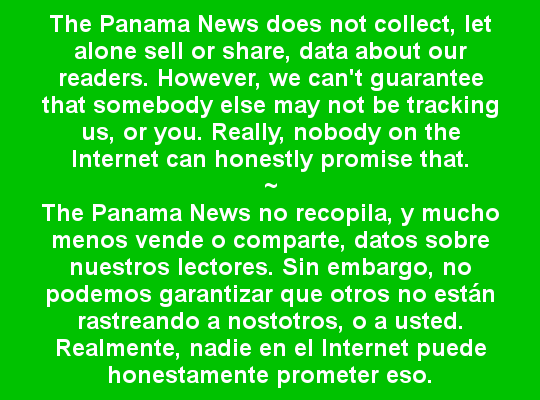
New barrier to small-scale solar energy
by Eric Jackson
When the old IRHE electric company was broken up and privatized (except for the main power lines) in the Pérez Balladares administration, the law said that homes and businesses could have windmills or photovoltaic arrays and sell the excess of energy that they produce to the power grid. But that law has never been implemented in a serious way.
Why? The Varela administration’s answer is an unspecified concept of what is “equitable.” Its new rate scheme not only imposes a deduction from selling power to the grid for the cost of maintaining that grid but also jacks up the rates of those who have solar panels when they buy power from the grid. How much? To be announced.
ASEP did not hold hearings for proposals about how to integrate small energy generators into the grid. They held a May 23 hearing about what they are doing, to hear the big companies say that they like the idea of excluding competition — although they did not put it like that — and for everybody else in attendance to say that they were appalled. Then they anounced that the proposal would go into effect. Small solar generators say that it’s an effective ban on selling to the grid.
Recall that shortly after Mireya Moscoso took over the presidency from Pérez Balladares, she brought in a former ENRON executive to write the nation’s energy policy. That was that the big energy companies control everything, that people with solar panels or windmills would destroy the still public ETESA power grid, and that as a matter of ideology the Panama Canal Authority would have to stop generating power at the Gatun and Madden Dams because this would be unfair competition for what rightfully belongs exclusively to private corporations. The Martín Torrijos administration killed the restriction on the Panama Canal Authority.
We went through a period of privatization by way of concessions for just about every river and stream in Panama, purportedly to meet the nation’s power needs but actually mostly to speculate on water and real estate around artificial lakes. There were people and communities dispossessed. No property rights for THEM. And little solution for the dry season hydroelectric power shortage, either. Many of the more blatantly fraudulent concessions have been stalled or revoked.
New and prohibitive taxes were imposed on imported solar cells, windmills and the paraphernalia associated with these. Why? Just because.
Those tariffs violated treaties and the outright bans violated the 1990s law, so there have been retreats and retrenchments The Varela administration’s new policy is but the latest version.













